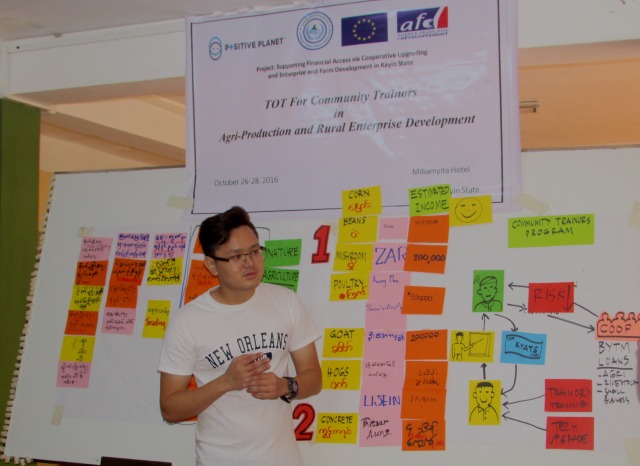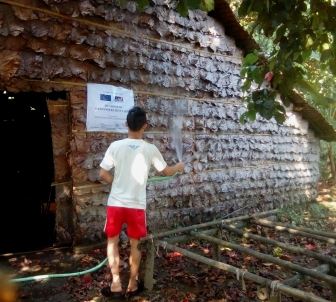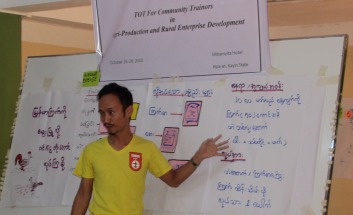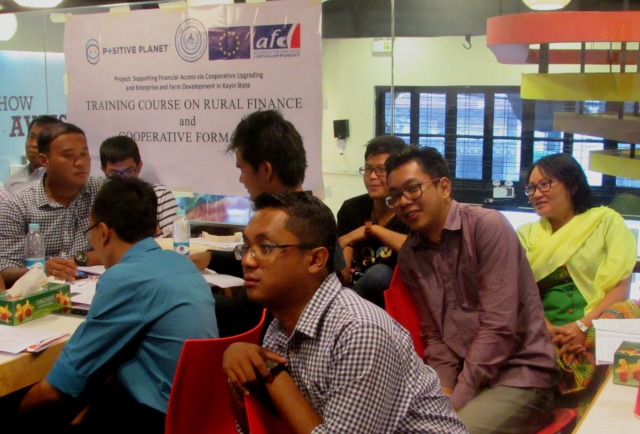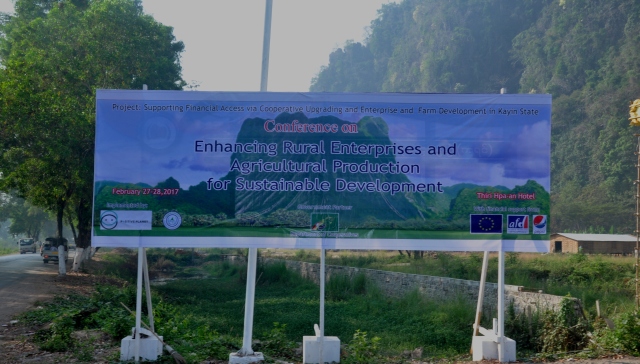
The picturesque Mount Zwegabin overshadowed the Thiri Hpa-an Hotel where the closing conference of the Project was held. The magnificent view was a suitable backdrop for participants in their colorful longyis and traditional Kayin dresses as they strut around the grand ballroom of the hotel.


Officers and staff of PPLL Officers and staff of BYTM
For two days, February 27-28, more than a hundred entrepreneurs, government officials, members of cooperatives and NGO support groups gathered and deliberated on SME development in the context of what the Project has achieved. The theme of the conference revolved around improving agricultural production and rural enterprises to promote sustainable development for Kayin State.


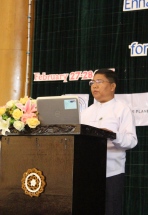

Conference speakers, from left to right: Dr. Tin Win Kyaw, Deputy DG U Thaing Naung, Director U Myo Aung, and Dr. Than Naing
Aside from the members of the Bawa Yay Thauk Myint Cooperative and the Pwint Pwint Lin Lin Cooperative, members of the Kayin State Chamber of Commerce and Industries (KSCCI) actively participated in the discussions. Top State officials also provided inputs, including Dr. Tin Win Kyaw (State Minister for Social Services) who gave the Keynote Speech representing Chief Minister Daw Nan Khin Htwe Myint; Daw San San Yi (Director for Planning and Finance) who delivered the economic situation of Kayin state; Daw Win Win Than (Asst. Director for Planning and Finance), U Tin San (Director for Consumer Affairs) as resource persons for future directions of SME development in Kayin State.
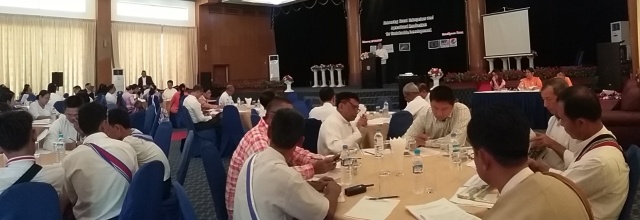
Conference plenary session
The Department of Cooperatives (DOC) officials from Nay Pyi Taw who attended the conference were headed by DDG Thaung Naing and other officials including Director U Myo Aung and Deputy Director U Nyan Win Maung. They were joined by cooperative officers from Kayin and neighboring Mon State and Bago Region. Representatives from the Central Cooperative Society (CCS) were also present.
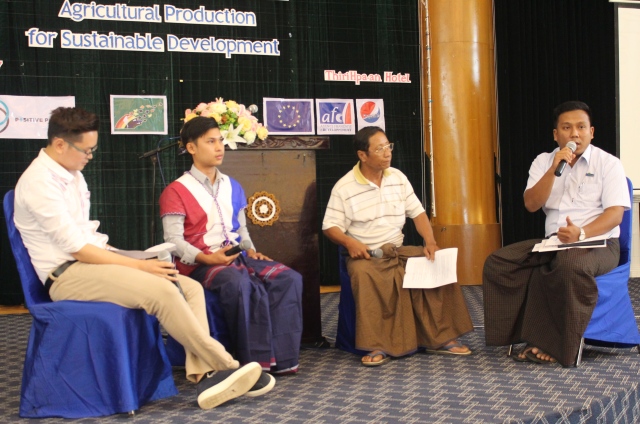
Panel discussion on enterprise finance
Cooperatives from neighboring Thailand were also invited, but were not able to come due to some immigration problems, but that did not snuff out the idea of strengthening partnerships between them and the two cooperatives.

Small group
The main issues in the conference were the access to financing for member-entrepreneurs and the long-term sustainability of the two cooperatives. The efforts at making the cooperatives stronger are focused on the expansion of its members to cover not only the current project areas but the whole of Hlaing-bwe Township.

Positive PlaNet and CDA Project team members and volunteers
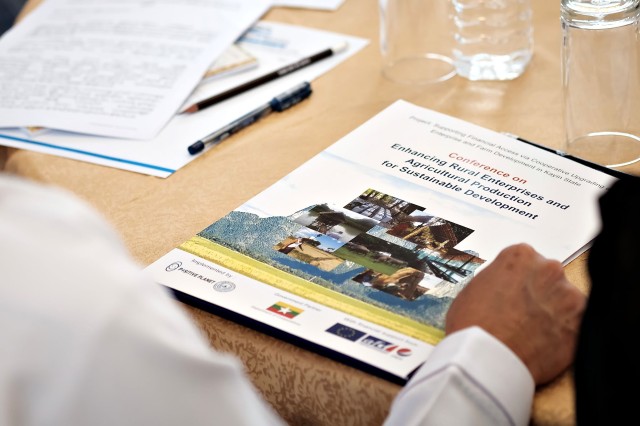
Grateful acknowledgments to the funding partners – European Union (EU), French Development Agency (AFD) and PepsiCo; to government partners – Department of Cooperatives and the Kayin State government; and to the people of Hlaing-bwe Township.




